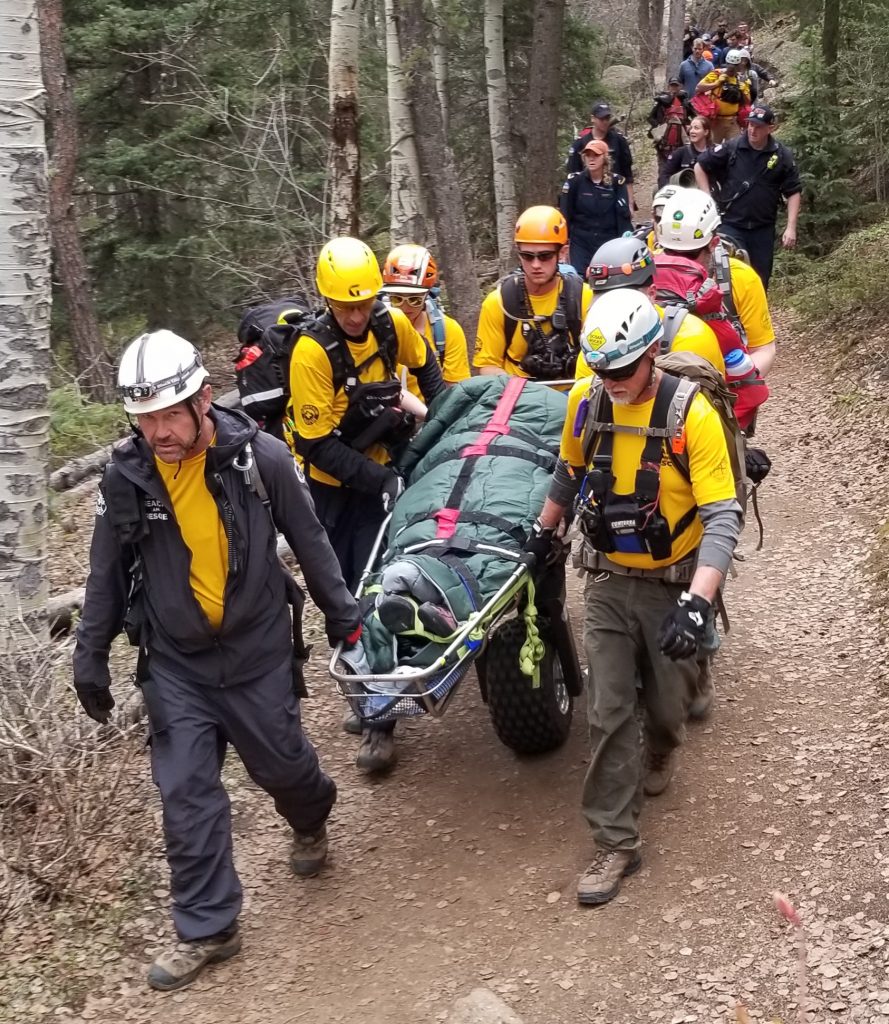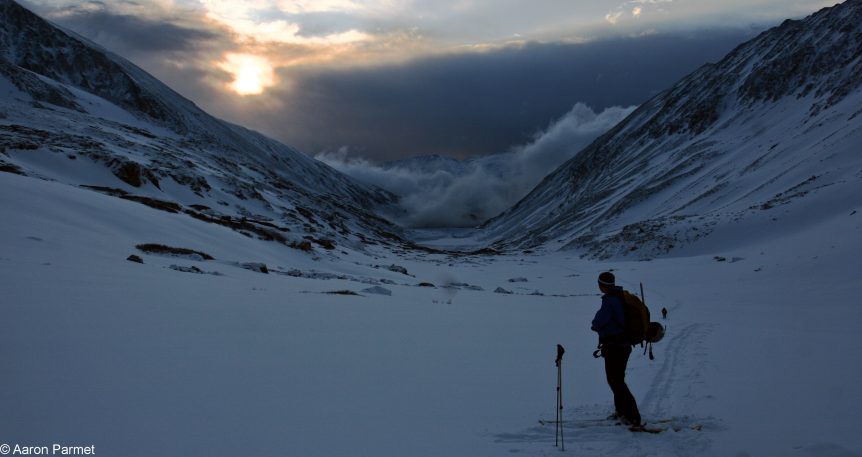“Rescue 10, we’ve got a call from a hiking party at a ski area needing assistance,” the dispatcher said. “Are you ready to copy the phone number?
Mike grabbed a pen. “Injured, or lost?” he asked. The dispatcher paused. “I’m really not sure,” she said. Something in her tone of voice told Mike this was likely to be a questionable call.
Mike immediately called the reporting party, a man named Derek. “What’s the situation?” he asked.
“My hiking partner is just really tired,” Derek said.
“Where are you?” Mike asked, assuming they must also be lost.
“We’re right under the gondola,” Derek said.
“So…you know how to get back to the bottom then. And no one is injured?”
“No,” Derek said, a little sheepishly. “My friend just says he’s tired, and the slope is pretty steep so it’s making his quads hurt to hike downhill. I should probably try to convince him to keep walking, huh?”
“We’re here if you really need us,” Mike responded. “But understand, we’re at least two hours out, depending on how far up you are. We have to get responders to the base area, and then they have to hike up to you. And when we get there, what is your friend expecting? That we’ll carry him out?”
“I don’t know…I think he might be expecting a helicopter,” Derek responded.
Fortunately, this story ended with Derek and his friend deciding to walk themselves out. Unfortunately, however, this sort of call is becoming all too frequent in Colorado. 911 calls for SAR assistance should only be made when the situation truly warrants it. When someone is injured or ill and cannot get back to their car on their own, that call is necessary and should be made sooner rather than later. When someone is lost or overdue for a reasonable amount of time, and/or dangerous weather is approaching, that is also an obvious need for assistance.
But in some circumstances the decision to call SAR is not so clear cut. If you’re simply tired or thirsty, you should be aware that it will take SAR responders some time to reach you. Did it take you four hours to get where you are? It will take a SAR team longer, because they need to gear up and get to the trailhead and then likely hike the same route you did. SAR volunteers are generally responding from their homes or jobs; they are not like firefighters or ambulance personnel, staged at a central location and waiting to respond to a call at a moment’s notice. Do you have enough clothing to stay warm while you wait? And while teams do everything possible to make you comfortable, it’s not fun to be carried out. Backcountry litters are not like hospital beds, and if you can be towed behind a snowmobile or ATV, that speeds things up but may also make a bumpy ride even bumpier.

SAR services are often requested by a concerned family member or friend, and yet the subject may not need nor want help. Worried fathers call about their overdue son or daughter; worried spouses call about their partner, whom they assumed would climb that fourteener in only seven hours, and now it’s been nine. How do you avoid this situation? Have a conversation beforehand about plans and expectations. Who is going and what are their cell phone numbers? What vehicle(s) will they be taking and what are the license plate numbers? What’s the planned route, and how long should it take? How long is truly too long? Will there be a phone call or text message at some point to say, “I’m out, I’m safe”? What’s a reasonable window of time in which to expect that call or text? Are alternate plans being considered? Two-way satellite communicators may be a useful tool to notify friends and family of a delay or change of plans, and they can also be used to call for search and rescue in a true emergency.
Sometimes, folks who are tired, cold or frightened think a helicopter ride will be a quick and easy solution. It’s not. Helicopters can be expensive and dangerous, and SAR teams are generally authorized to use them only in cases where life, limb or eyesight are threatened, or rescuer safety is at stake. It is not uncommon for helicopters to be grounded due to clouds, precipitation or winds, and this is especially true in the mountains. Please see Rescue helicopters are not an Uber for insights about helicopters and SAR in Colorado.
If you have an emergency and are considering whether you need SAR, and you have a cellphone with reception, call 911 and discuss your situation with the local dispatcher. He or she might connect you with the local SAR team for direct advice. Friends and family can consult CSAR’s SAR County Map to identify the right county sheriff’s office to report or ask about an overdue party.
The best way to avoid an unnecessary call is to plan, prepare and communicate, both before, during and after your backcountry adventure. SAR teams will be there for you if you need us, without any charge for service! But you can help our busy volunteers tremendously by considering carefully whether you truly need assistance.

